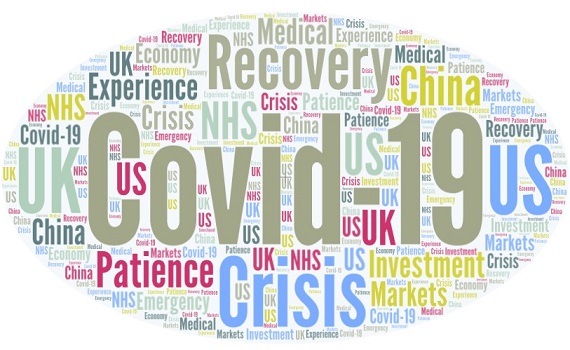
Economic & Market Outlook – December 2020
The likely contrast between 2020 & 2021
With major European economies all experiencing either new nationwide or tiered lockdowns and the US experiencing new records in daily infections, there is no immediate relief from the Covid-19 pandemic in sight. This means that the fourth quarter of 2020 will most likely see declines in real Gross Domestic Product (GDP). Going into 2021 we could experience a weak first quarter in the northern hemisphere while the virus persists, to be followed by relatively strong bounce-backs through the second and third quarters, especially as the roll out of the vaccine spreads.
These recoveries will be boosted by the huge monetary and fiscal stimulus policies from central banks and governments across the developed world. Therefore, the recovery, once the virus is dealt with, is likely to be much stronger than the recovery which occurred following the Global Financial Crisis (GFC) a decade ago. In 2009/10 banks and households needed to repair balance sheets by raising capital and/or reducing borrowing and therefore were unable to take advantage of low interest rates to expand borrowing and spending.
Now in 2020/21 money and credit have mostly been growing strongly in leading economies. This explains why equity and housing markets have been buoyant. This invariably leads to strong growth of spending, but this will only happen once the uncertainties and social distancing associated with the virus are largely overcome.
So if 2020 was dominated by the pandemic, the lockdowns and the enormous government and central bank programmes to overcome the effects of the economic downturns, 2021 is likely to be dominated by the speed with which effective vaccines can be deployed and the effects of the huge financial stimulus policies.
During 2020 the only tools that governments were able to rely on to suppress the virus were various forms of social distancing, lockdowns or working from home, and severe restrictions on a whole range of economic activity, including services such as travel, hospitality, and those activities that brought together large numbers of people such as theatres, live concerts, and sports events at stadiums. Not surprisingly the economic consequences have been dire with the largest economic declines in activity ever recorded.
In 2021 we can expect to see the roll out of adequate numbers of vaccine doses which will probably take most of the first half of 2021 Therefore, we are likely to see a return to some sort of normality in the second half of the year. However, once the return to normality is widely perceived to be under way with consumers and businesses regaining confidence, we could see a significant transformation of the economic environment. Furthermore, in the second half of 2021 we could also see households and businesses start to spend the excess money balances accumulated in 2020. This means that consumption, investment and employment are all likely to recover at a much more rapid pace than after a typical recession, and therefore generating a strong bounce-back.
Theoretically we should then expect a further stage in the process, being the impact on consumer price inflation. However, this may not occur until 2022, depending upon how cautious consumers and businesses remain.
For clarification of any points discussed above and any future independent advice regarding your own financial planning, please do contact us on 01626 833225 or email [email protected]
Important Information
The views and opinions contained herein are those of Loughtons Independent Financial Advisers and may not necessarily represent views expressed or reflected in other economic communications, strategies or funds.
This post is intended to be for information purposes only and it is not intended as promotional material in any respect. The material is not intended as an offer or solicitation for the purchase or sale of any financial instrument. The material is not intended to provide, and should not be relied on for, accounting, legal or tax advice, or investment recommendations. Information herein is believed to be reliable but Loughtons Independent Financial Advisers does not warrant its completeness or accuracy. No responsibility can be accepted for errors of fact or opinion. This does not exclude or restrict any duty or liability that Loughtons Independent Financial Advisers has to its customers under the Financial Services and Markets Act 2000 (as amended from time to time) or any other regulatory system.
Loughtons Independent Financial Advisers is a trading name of JPRS (South West) Limited. JPRS (South West) Limited is authorised and regulated by the Financial Conduct Authority.
